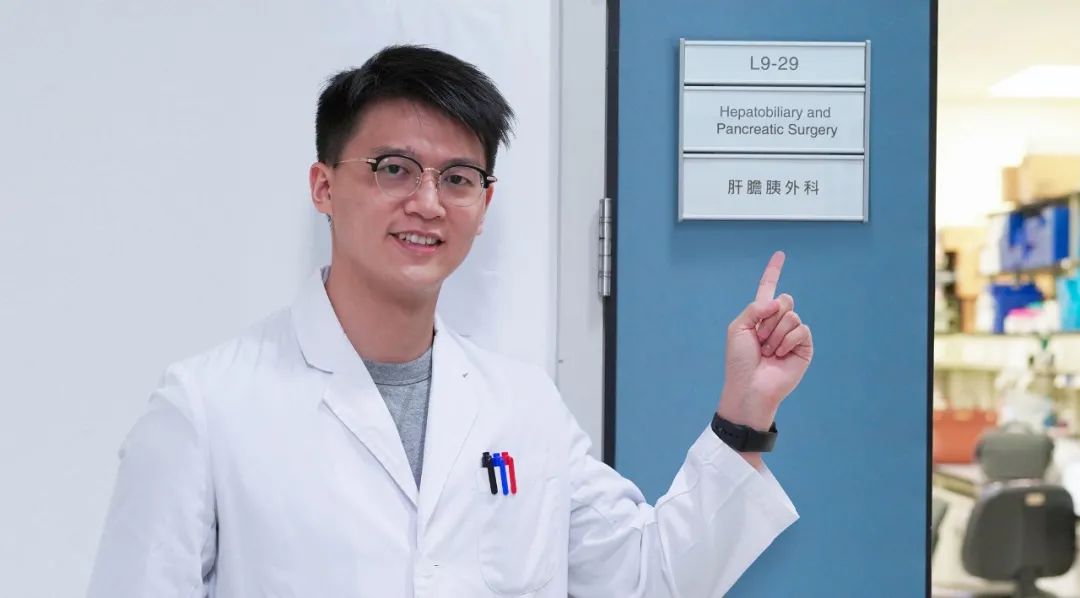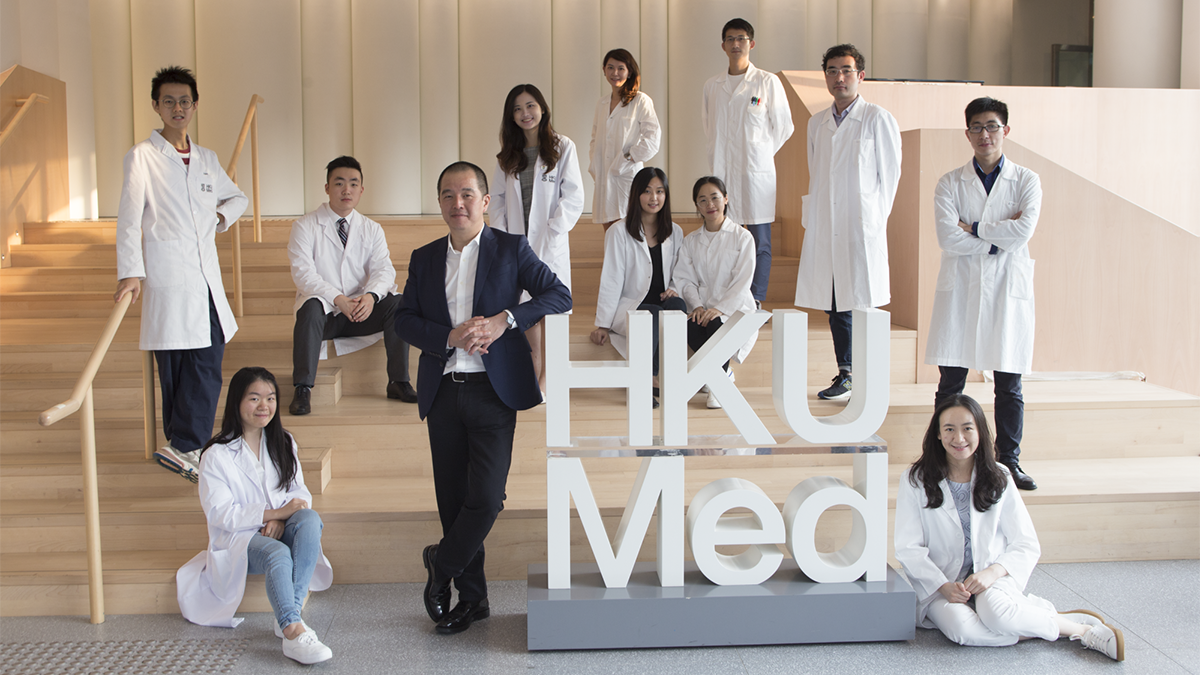Research Area 1: Breast Surgery
- Breast cancer genetics, biomarkers and translational research
- Advanced surgical technologies in management of breast disease and breast cancer
- Epidemiological and psychosocial studies in breast cancer
- Bio-engineering research in breast cancer
- Oncological clinical trials
| Supervisor(s) |
|---|
Research Area 2: Colorectal Cancer
- Transanal total mesorectal excision for low rectal cancer
- Application of robotic surgery in colorectal surgery
- Functional outcomes after rectal resection
- Screening of colorectal cancer
- Novel biomarkers for tumour recurrence and metastasis
| Supervisor(s) |
|---|
- Signalling pathways of colorectal cancer development, progression, metastasis and chemo-resistance
- Molecular biomarkers for cancer diagnosis and prognosis
- Pre-clinical model for colorectal cancer therapy
- Intra-tumoural microbiota investigation
| Supervisor(s) |
|---|
Research Area 3: Endocrine Surgery
- Thyroid cancer and surgery
- Parathyroid disease and surgery
- Functional and non-functional adrenal tumours
- Pancreatic neuroendocrine tumours
- Thermal ablation of benign thyroid nodules
- Value-based health care delivery
| Supervisor(s) |
|---|
Research Area 4: Oesophageal and Gastric Cancers
- Animal cancer models
- Treatment resistance mechanism
- New biomarkers and treatments
- Epigenetic studies
- Bioimaging
| Supervisor(s) | Research Interest |
|---|---|
|
Oesophageal cancer |
|
|
Gastric cancer |
Research Area 5: Liver Transplantation and Liver Regeneration
- Transplant immunology and oncology
- Fatty liver diseases and NASH
- Biomarker, mechanism and treatment of disease recurrence after liver transplantation
- Mechanism and therapeutic implication of liver regeneration
| Supervisor(s) |
|---|
Research Area 6: Liver Cancer
- Cancer immunology and tumour microenviornment − mechanism and therapeutics
- Hepatitis B recurrence − mechanism and therapeutics
- NASH and cancer
- Cholangiocarcinoma
| Supervisor(s) |
|---|
Research Area 7: Molecular Mechanisms and Therapeutic Targets of Hepatocarcinogenesis and Metastasis
| Supervisor(s) |
|---|
Research Area 11: Hepatocellular Carcinoma
- Cancer genomics in hepatocellular carcinoma
- Cellular mechanism in associating liver partition and portal vein ligation for staged hepatectomy or portal vein embolisation
- Biomarkers, mechanisms and assessment of efficacy of immunotherapy for hepatocellular carcinoma
| Supervisor(s) |
|---|
Research Area 12: Hepatocellular Carcinoma and Pancreatic Cancer
- Biophysiological change in laparoscopic liver resection for HCC
- Cancer immune environment and recurrence in laparoscopic hepatectomy for HCC
- Immune environment changes and prognostication of immunotherapy for HCC
- Genomic analysis of pancreatic cancer in Chinese population
| Supervisor(s) |
|---|
Research Area 13: Neurooncology
- To investigate and develop novel therapeutic approaches for the treatment of malignant glioma based on translational in vitro and in vivo laboratory experiments
- Main foci:
- Chemotherapy drug resistance
- Tumour microenvironment
- The role of innate immune response
- Tumour metabolic functions and cell death pathways
- Latest findings:
- Recently, we found that pharmacological inhibition of serine synthesis could enhance temozolomide efficacy in glioblastoma, and that the expression level of the chaperone protein, P4HB, could predict treatment response and clinical prognosis.
| Supervisor(s) |
|---|
Research Area 14: Cerebrovascular Diseases
- To investigate and develop novel therapeutic approaches for the treatment of intracerebral haemorrhage based on translational in vitro and in vivo laboratory experiments
- Main foci:
- Pathophysiology of demyelination and remyelination following haemorrhagic stroke
- The role of innate immune response in haematoma resorption
- Neuroprotective measures to improve functional outcome
- Latest findings:
- We recently found that vitamin D supplementation could significantly improve functional outcome following intracerebral haemorrhages by enhancing phagocytosis of red blood cells; vitamin D deficiency, on the other hand, was associated with poorer outcome.
| Supervisor(s) |
|---|
Research Area 15: Molecular Mechanistic Study of Developmental Disorders and Cancers Commonly Found in Children
- Molecular basic study of biliary atresia
- Molecular study of hepatobiliary system development
- Molecular basic study of Hirschsprung's disease and other related neurocristopathies
- Molecular study of enteric nervous system development
- Molecular basic study of Congenital Pulmonary Airway Malformation (CPAM)
| Supervisor(s) |
|---|
Research Area 16: Translational Research of Birth Defects and Related Diseases
- Genetics, stem cell and regenerative medicine: translating disease mechanism discoveries to treatment of biliary atresia
- Towards precision diagnostics and regenerative therapies for Hirschsprung’s disease: from genomics to cells to tissues
- Molecular genetic study of anorectal malformations
- Childhood cancers
| Supervisor(s) |
|---|
Research Area 17: Stem Cells and Disease Modelling
- Molecular bases of various congenital diseases affecting heart, center and enteric nervous systems
- Molecular study of enteric nervous system development in human and mouse
- Neural crest stem cells biology
- Human pluripotent stem cell-based cell- and organoid- models of genetic disorders
- Tumour stem/initiating cells
| Supervisor(s) |
|---|
Research Area 18: Thoracic Disorders in Children
- Understanding the pathogenesis of congenital pulmonary malformation
| Supervisor(s) |
|---|
Research Area 20: Paedaitric Solid Tumours
- High throughput new drug screening for cancer using 3D culture
| Supervisor(s) |
|---|
Research Area 24: Epidemiology, Genetic Epidemiology and Translational Study for Urological Diseases
| Supervisor(s) |
|---|
Research Area 25: Vascular Disease and Surgery
- Pathogenesis, haemodynamics and endovascular treatment of aortic aneurysms and aortic dissections
- Epidemiology and atherogenesis of peripheral arterial and venous diseases
| Supervisor(s) |
|---|
Find Out More
Information on selected projects or research areas: Interested candidates are advised to email the relevant supervisors. Please enclose with your email: (i) your CV, (ii) a brief description of your research interest and experience, and (iii) two reference letters (reference letters not required for HKUMed UG students seeking MRes[Med] or URIS projects)
Research studies enquiries specific to the Department/School’s research should be directed to the Departmental Research Postgraduate Advisor: Professor K Man ( kwanman@hku.hk)
Information on the research programme, funding support and admission requirements could be found on the RPg Admissions website.
General admission enquiries should be directed to rpgmed@hku.hk.
Meet Our Students

YANG Xinxiang
Place of Origin: China
Progress: PhD Year 4
Supervisor: Prof K Man
楊新祥所在的南京醫科大學第一附屬醫院肝臟中心與香港大學肝臟移植與肝癌實驗室開展合作,他得到了赴港大醫學院做研究助理的機會。期間,楊新祥在港大接觸到了肝癌和肝移植最前沿的研究,令他受益匪淺,港大實驗平台的優勢和實驗室融洽的氛圍也深深打動了他,選擇了來到港大醫學院攻讀博士。
在學習的過程中,讓他認識到基礎科研為臨床帶來的正反饋。楊新祥關注到,人類一旦患上肝癌,體內攜帶的「自然殺傷細胞」(natural killer cell)就會功能變弱甚至失效。經過一系列的研究,他最終成功找出了讓自然殺傷細胞恢復功能的靶點,通過恢復身體的免疫功能來對抗肝癌。
September 2020


Follow HKUMed